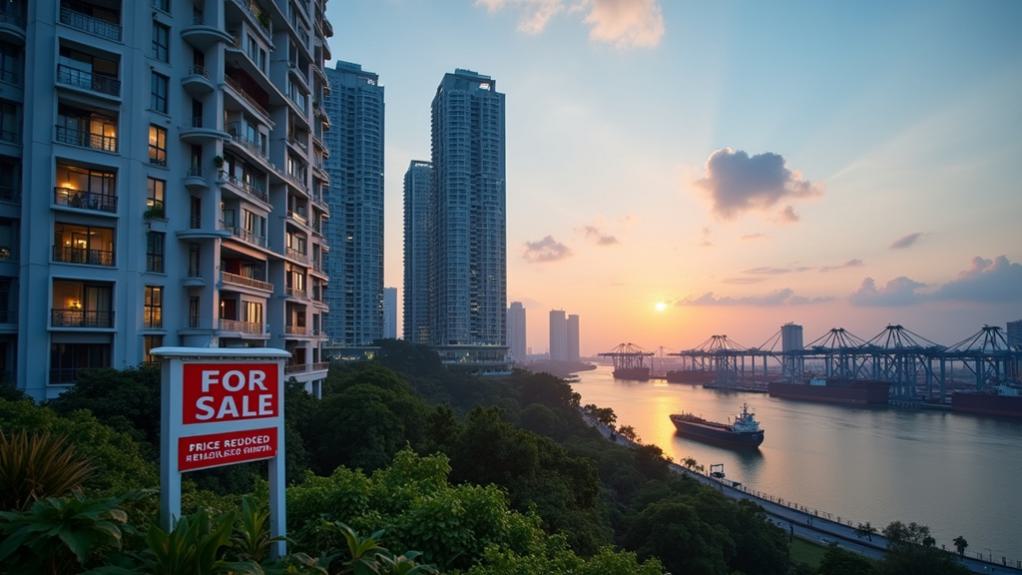As global trade tensions escalate with the implementation of new tariffs in 2025, Singapore’s condominium market is witnessing a notable shift in buyer psychology, particularly in the waning of FOMO (Fear of Missing Out) that previously characterized purchasing decisions.
The introduction of trade tariffs has raised economic uncertainty and increased volatility in financial markets, contributing to a more cautious approach among prospective property investors who are now displaying greater deliberation before committing to purchases.
Singapore, subjected to a baseline 10% tariff but spared from higher country-specific surcharges, is projected to experience a moderate impact on its property sector due to solid economic fundamentals and its non-retaliatory stance on tariffs.
The residential property market, including the condominium segment, demonstrates resilience against short-term economic shocks, supported by limited housing supply and Singapore’s enduring reputation as a safe haven for capital amid regional instability.
Trade tariffs have dampened optimism regarding near-term price increases, reducing the urgency among buyers who previously feared missing market opportunities.
Market urgency has waned as trade tensions diminish expectations of rapid price growth, shifting buyer psychology from FOMO to caution.
This cooling of FOMO has led to a normalization of transaction volumes and more balanced negotiation dynamics between buyers and sellers. Some prospective purchasers are now delaying acquisition decisions, anticipating potential property price adjustments or future policy interventions as a consequence of the broader macroeconomic headwinds. Singapore’s negative growth impact could reach up to 100 basis points as an open economy particularly vulnerable to trade disruptions.
Despite Southeast Asia’s GDP growth forecast being downgraded to 0-2% for 2025, Singapore’s property market benefits from healthy household balance sheets and relative job stability, which continue to underpin fundamental demand for residential properties.
Foreign buyer interest remains steady, though investor appetite for high-value condominiums has softened as broader investment confidence weakens amid the uncertain trade environment.
The lasting impacts of tariffs imposed during the Trump administration continue to shape the regional economic landscape and influence property investment decisions across Southeast Asia, including Singapore.
Property developers have responded to changing market conditions by adopting selective launch strategies and offering incentives to maintain sales momentum.
Meanwhile, government authorities continue to monitor the property market closely, prepared to calibrate measures in response to external economic threats that could potentially impact market stability.
The luxury market segment has shown particular resilience despite broader economic challenges, as stable governance continues to attract foreign capital seeking security amid global uncertainty.





